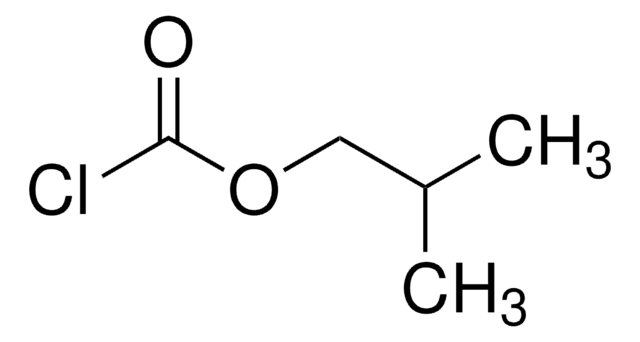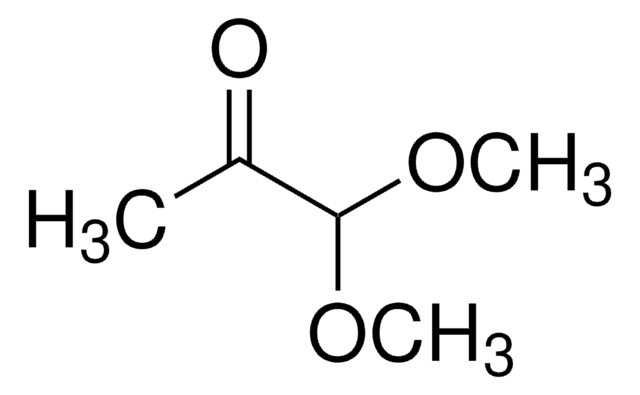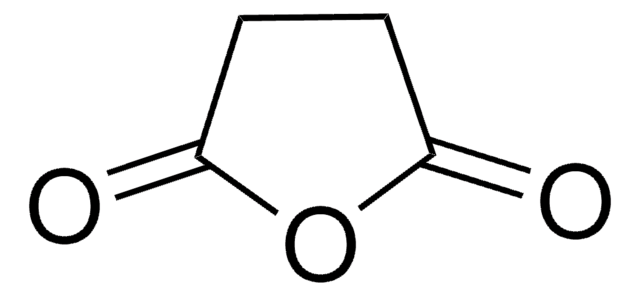All Photos(1)
About This Item
Linear Formula:
HO2CCH2CH2CO2C2H5
CAS Number:
Molecular Weight:
146.14
MDL number:
UNSPSC Code:
12352100
PubChem Substance ID:
NACRES:
NA.22
Recommended Products
Quality Level
Assay
90%
refractive index
n20/D 1.432 (lit.)
bp
248 °C (lit.)
density
1.141 g/mL at 25 °C (lit.)
SMILES string
CCOC(=O)CCC(O)=O
InChI
1S/C6H10O4/c1-2-10-6(9)4-3-5(7)8/h2-4H2,1H3,(H,7,8)
InChI key
LOLKAJARZKDJTD-UHFFFAOYSA-N
Related Categories
Signal Word
Danger
Hazard Statements
Precautionary Statements
Hazard Classifications
Eye Dam. 1 - Resp. Sens. 1 - Skin Corr. 1B - Skin Sens. 1
Storage Class Code
8A - Combustible, corrosive hazardous materials
WGK
WGK 3
Flash Point(F)
Not applicable
Flash Point(C)
Not applicable
Certificates of Analysis (COA)
Search for Certificates of Analysis (COA) by entering the products Lot/Batch Number. Lot and Batch Numbers can be found on a product’s label following the words ‘Lot’ or ‘Batch’.
Already Own This Product?
Find documentation for the products that you have recently purchased in the Document Library.
Customers Also Viewed
Characterization of different fruit wines made from cacao, cupuassu, gabiroba, jaboticaba and umbu.
Duarte WF, et al.
LWT--Food Science and Technology, 43(10), 1564-1572 (2010)
Manuel J Valcárcel-Muñoz et al.
Foods (Basel, Switzerland), 10(2) (2021-02-13)
Brandy de Jerez is a European Geographical Indication for grape-derived spirits aged in oak casks that have previously contained any kind of Sherry wine and, therefore, are known as Sherry Casks®. Wood compounds have a substantial influence in the quality
Emrah Altuntepe et al.
Applied microbiology and biotechnology, 101(15), 5973-5984 (2017-05-14)
Succinic acid (SA) was esterified with ethanol using Candida antarctica lipase B immobilized on acrylic resin at 40 and 50 °C. Enzyme activity in the reaction medium was assured prior to reaction experiments. Reaction-equilibrium experiments were performed for varying initial molalities
Pierre Awad et al.
Journal of agricultural and food chemistry, 65(35), 7736-7748 (2017-08-02)
Cognac wine spirit has a complex composition in volatile compounds which contributes to its organoleptic profile. This work focused on the batch distillation process and, in particular, on volatile compounds specifically produced by chemical reactions during the distillation of Cognac
Rosa Perestrelo et al.
Molecules (Basel, Switzerland), 24(17) (2019-08-24)
In the present study we aimed to investigate the volatile organic compounds (VOCs) that may potentially be responsible for specific descriptors of Madeira wine providing details about Madeira wine aroma notes at molecular level. Moreover, the wine aroma profile, based
Our team of scientists has experience in all areas of research including Life Science, Material Science, Chemical Synthesis, Chromatography, Analytical and many others.
Contact Technical Service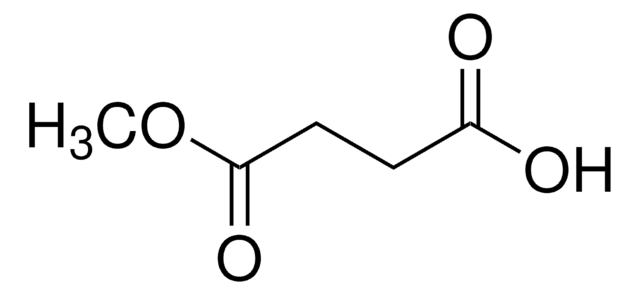
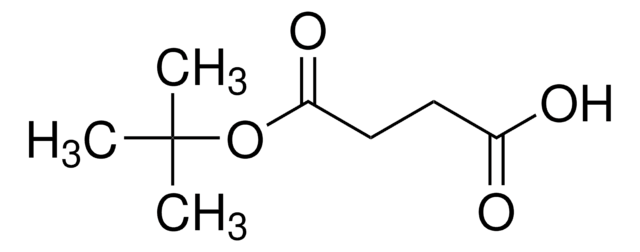



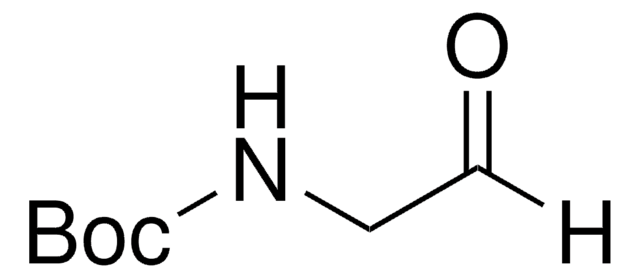

![3-[(Benzyloxycarbonyl)amino]propionaldehyde 95%](/deepweb/assets/sigmaaldrich/product/structures/408/203/100fb0f0-7072-41be-b6e0-2857cdc324ee/640/100fb0f0-7072-41be-b6e0-2857cdc324ee.png)
